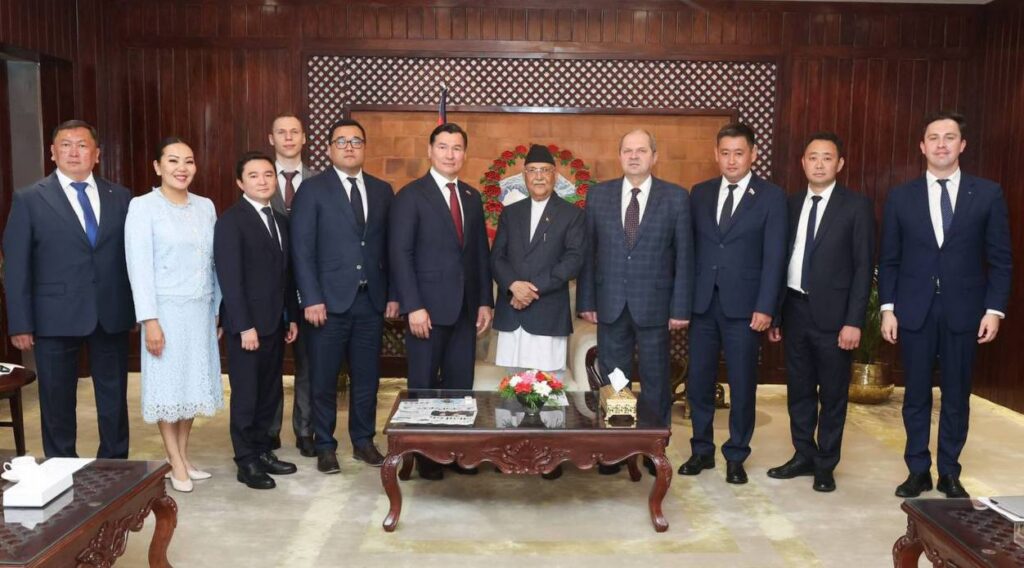KATHMANDU (Realist English). A high-level delegation from the Republic of Kalmykia, led by its Head Batu Khasikov, paid an official visit to Nepal, where the delegation held talks with Prime Minister Khadga Prasad Sharma Oli. The visit underscored the growing importance of humanitarian diplomacy and religious-cultural ties in Russia’s broader strategy toward a multipolar world order.
The Russian delegation included:
- Bayir Puteev, Member of the Federation Council representing Kalmykia
- Andrey Kartiev, Permanent Representative of Kalmykia to the President of Russia
- Erdni Tserenov, First Deputy Prime Minister of Kalmykia
- Sergey Kirishov (Geshe Yonten), Chair of the Central Buddhist Spiritual Administration, Member of the Civic Chamber of the Russian Federation
- Vladimir Salykov, Advisor to the Head of Kalmykia
- Gennady Korneev, Advisor to the Head of Kalmykia
- Diana Boshkhomdzhiyeva, soloist of the State Song and Dance Ensemble “Tulpan,” and honored artist of the Republic of Kalmykia
The visit highlighted Kalmykia’s unique status as Europe’s only Buddhist-majority region, positioning it as a natural bridge between Russia and the Buddhist world. In talks with Nepalese leaders, Khasikov emphasized Kalmykia’s openness to cooperation aligned with people-to-people diplomacy and Russia’s strategic engagement in Asia.
“The world is becoming multipolar. The Russian Federation is interested in open and honest relations with countries that share the values of mutually beneficial economic and humanitarian cooperation, sovereignty, and the preservation of traditional cultural values,” Khasikov said.
Nepal, long regarded as a sacred land for Buddhists worldwide, has maintained strong ties with Russia based on mutual respect, friendship, and shared positions on many global issues. Discussions during the visit focused on new areas of cooperation:
- Buddhist pilgrimage tourism
- Cultural and educational exchange
- Trade and economic partnerships
- Scientific collaboration in Buddhist studies and related fields
Kalmykia expressed its readiness to contribute to the further strengthening of the strategic partnership between Russia and Nepal, emphasizing the potential of joint efforts to build forward-looking, inclusive, and culturally grounded cooperation.
The visit followed a personal meeting between Khasikov and Russian President Vladimir Putin, during which the President endorsed preparations for the 3rd International Buddhist Forum. Khasikov formally invited Prime Minister Oli and a Nepalese delegation to participate in the forum, which will take place this autumn in Elista, the capital of Kalmykia. The forum will aim to promote Buddhist education and foster regional integration based on shared values and mutual respect.
“The future lies in humanitarian cooperation and in the wise use of soft power rooted in our history and cultural heritage,” Khasikov stated. “I am convinced that supporting Buddhist education and research will become a foundation for constructive and long-term integration among many states.”
